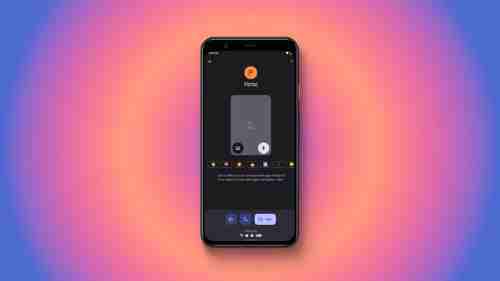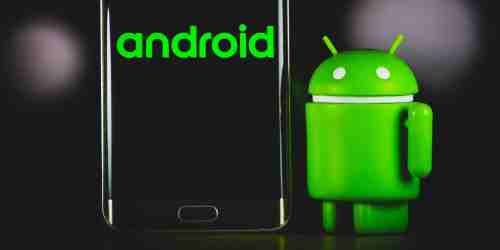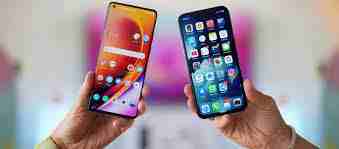Android is the mobile operating system built on an altered version of the Linux kernel, as well as other open-source software designed specifically for touchscreen devices, including tablets and smartphones. Android was developed by software developers known as the Open Handset Alliance, though Google created the most commonly used version. The device debuted in November 2007, and the first official Android phone, the HTC Dream HTC Dream, was launched in September.
The operating system is referred to in the form of Android Open Source Project (AOSP)[4 is free and open source software (FOSS) mostly covered by the Apache License. However, most devices use the exclusive Android version created by Google and come with proprietary closed-source software that is preinstalled. Among them are Google Mobile Services (GMS)[6[6], which includes the core applications, including Google Chrome and Google Play, the online distribution system Google Play, and Google Play, which is the Google Play Services development platform. Firebase Cloud Messaging can be used to send push notifications. Even though AOSP is completely free, its “Android” name and logo are trademarks belonging to Google that enforce standardization for the restriction of usage of Android brand names on “uncertified” devices outside their network. [7][8]
More than 70 percent of phones built on the Android Open Source Project use the Google ecosystem (which is referred to simply as Android), and some of them have customized user interfaces by the vendor and even software suites like TouchWiz as well as later One UI by Samsung and HTC Sense. The competing ecosystems and variations of AOSP comprise Fire OS (developed by Amazon), ColorOS by OPPO, OriginOS by Vivo, MagicUI by Honor, and customized ROMs like LineageOS.
What is the meaning of an Android device?

An Android device runs the Android operating system. Android offers a range of mobile device applications, including OS, core applications, and middleware. An Android device could consist of a tablet PC, e-book reader, or any other mobile device that needs an operating system.
Android is a product developed through the Open Handset Alliance, which Google runs. Acer, HTC, Samsung, LG, Sony Ericsson, and Motorola are a few popular Android manufacturers.
Techopedia explains Android Devices.
The most popular Android devices are tablets, smartphones, and electronic readers. Android OS is available on a variety of instruments. Android OS is also built into several agencies, including netbooks and portable music players. The Binatone IHome Phone, as well as Odroid portable game consoles.
Android device programmers and developers can get more information on the Android site, which provides the Android tool for software-driven development.
In a brief time in a short time, in a brief period, the Android platform was so well-known that it even surpassed Windows Mobile and Symbian for several applications. Many mobile device companies adopted the Android platform because of its vast popularity. The main reasons for this popularity include:
- Innovative technology provided by Google
- Very user-friendly platform
- It is possible to use it for smartphones and tablets
- Anyone can make modifications to the Android platform if they wish. Android SDK is open to users.
- The availability of a considerable number of apps
What exactly is An Android Phone?
To understand Android phones, you need to comprehend the basics of what Android is. Android is an open-source OS that runs on Linux. It was designed through the Open Handset Alliance, a group of companies led by Google.
Android was released for the first time in 2008, and it was designed to run touchscreen phones. The tablet version of Android was launched shortly after, and since then, the style for both tablet and mobile versions has been identical.
So, any phone running Android as the operating system is considered an Android phone. While Google creates and operates Android, however, its operating system’s features are not exclusive to it.
Being an open-source software implies that anybody with developed experience can download Android and modify it to their preferences. The Android Open Source Project lets users download the source code and read the documents related to the latest releases.

Do you need to buy an Android phone?
Is it possible if you’re looking for an adaptable, flexible smartphone? Android phones also come with different prices, which means that if you are looking for the cheapest option, every handset you purchase will likely run Android.
But, if you’re considering purchasing an Android smartphone, check out the options in particular if you’re hoping to ensure your purchase will be secure over a year or so.
The history and evolution of Android OS
Android started as a Palo Silicon Valley-based startup called Android Inc. in 2003. In the beginning, the company was planning to create an operating system specifically for digital cameras but later stopped its efforts to expand its reach.
Google purchased Android Inc. and its principal employees in 2005 for at least $50 million. Google promoted the mobile operating system to handset makers and mobile service providers, offering significant advantages, including the ability to upgrade and flexibility.
What exactly is an operating system?
If you inquire, “What is Android?” You’re probably to get, “It’s an operating system.” The answer to that question will only help if you clearly understand the definition of an operating system!
An operating system is a piece of software that integrates the hardware and software components. It allows different varieties of hardware to be used and provides a framework to enable various software components to interface with hardware and, consequently, separate pieces of software.
If you still need clarification, consider an analogy for a stage performance. There’s a need for lighting, a stage, and microphones to stage a show. There are also additional equipment. Also, you’ll need actors, stage staff ushers, stage crew, and other employees similar to software. The show’s director would be similar to operating systems in that he acts as an intermediary who instructs everyone on how they can work. With the director, you’d possess functional hardware and many individuals running around wondering what they should do.
For smartphone devices, Android acts as the “director” for the unique device inside your phone, as well as applications you’ve decided to download.
Android Operating System vs. Apple iOS

The rise of Android has created new competition between the smartphone companies and Apple (AAPL), acting as Google’s main rival. For some, this rivalry situation is reminiscent of previous “cola wars” between Coca-Cola (KO) and Pepsi (PEP) during the last forty years. However, no definitive winner or loser has been identified. Android was the most used operating system for mobile phones in Q1 2022, having 23.7 percent of the worldwide market, while Apple’s iOS came in second at 18%, according to the International Data Corporation.4
The increasing popularity of Android has brought about a multitude of patent-related lawsuits. One of them was the lawsuit filed through Oracle (ORCL). The company claimed that Google had knowingly used Java APIs to develop their Android software. The case was heard in April 2021. The Supreme Court ruling 6-2 resolved the matter in Google’s favor.5
Some limitations with the Android Operating System
Although Android provides users a feasible alternative to other mobile operating systems, several restrictions exist. For developers, creating user-friendly experiences and user interfaces can be a complicated task that requires higher dependency on Java rather than Objective-C.6 The user side, on the other hand, is that applications offered on Android Market Android Market tend to have less quality than similar app marketplaces.
The applications have less secure profiles, which makes users more vulnerable to information breaches.7 Furthermore, Android’s absence of a voice-controlled interface and reliance on advertisements could turn off some users.